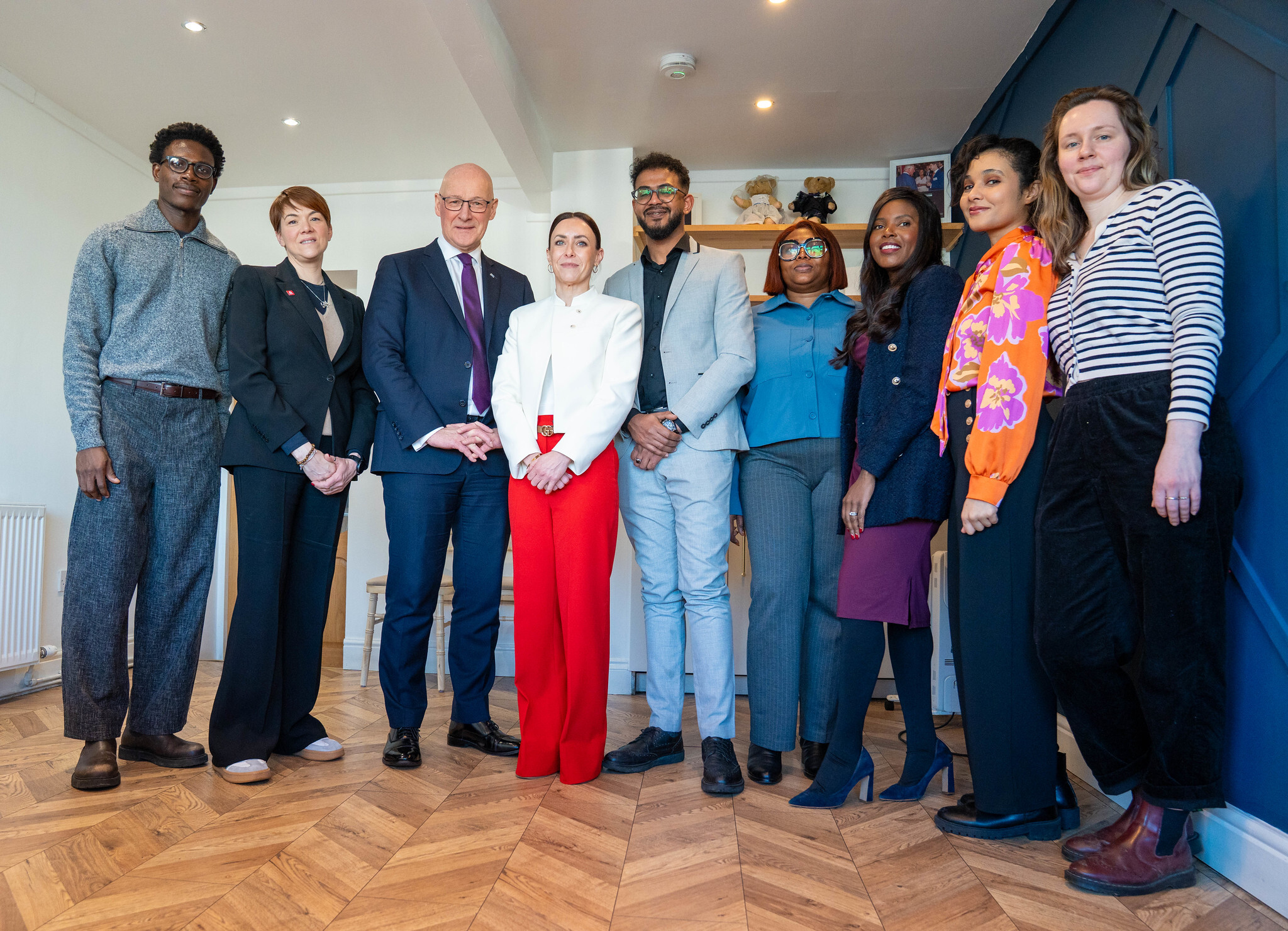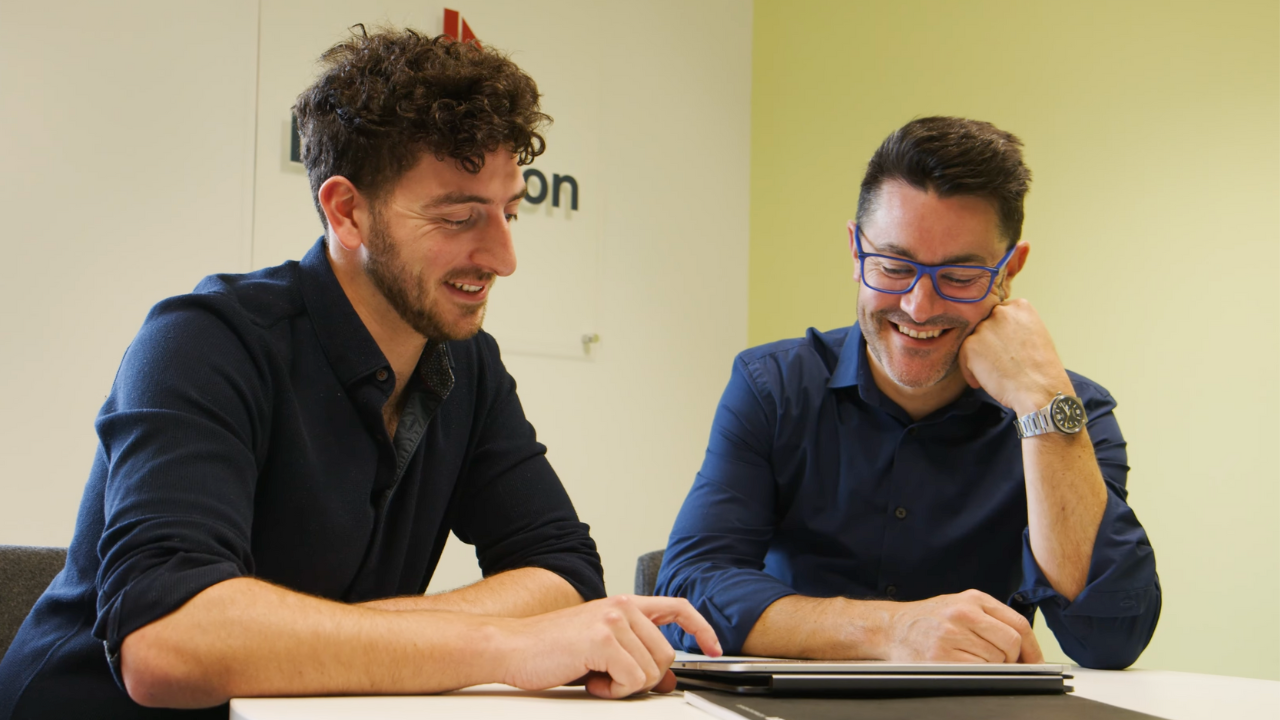with Colin Robertson
Colin Robertson is Vice Chair of the Board at NFI Group having recently handed over as CEO of Alexander Dennis Limited (ADL), a global leader in the design and manufacture of double deck buses and the UK’s largest bus and coach manufacturer.
Last year, ADL was acquired by Toronto Stock Exchange-listed bus manufacturing giant, NFI Group Inc. where Colin is now advising the Board after handing over to Paul Davies, incoming ADL President and Managing Director in Scotland.
Colin first joined ADL in 2007 from US-based Terex Corporation, where he was Executive Vice-President of Operations. Since joining ADL, he led its transformation from delivering an annual turnover of £178 million to a global revenue of £631 million by 2019.
Passionate about encouraging, developing and supporting the next generation of entrepreneurs in Scotland, Colin is also Chairman of Entrepreneurial Scotland, taking over from Chris van der Kuyl in 2018.
We recently caught up with Colin to get his no-nonsense views on what it means to be an entrepreneur and what he believes needs to be done to support the next generation of business leaders in Scotland. In this refreshingly honest and candid interview, he shares the many lessons learned and what it’s taken to grow ADL into a £multi-million international business based here in Scotland.
ES: What in your view and experience defines being an entrepreneur?
CR: For me, an entrepreneur is someone who has taken a degree of calculated risk to solve a business problem or a need – be it spoken or unspoken. Building a business and taking appropriate and measured risk to deliver a superior outcome for your customer or client. That’s actually how I see entrepreneurship in its purest form.
ES: Is a winning formula for becoming a successful entrepreneur?
CR: I’ve learnt over many years in business the value of asking for advice and help from those around me who have been successful and that I can learn from. I also believe that luck can play a part so long as you’re smart about timing and moving on before the market-place becomes too crowded. I’ve learnt a lot from reflecting on how others have been successful and even more from the mistakes they’ve made and how to try and avoid the downside risks.
ES: Describe yourself in three words only?
CR: Honest, Driven and Passionate.
Some people would even describe me a brutally honest. Hopefully now the brutal part is becoming less!
In the early years during my twenties and thirties, I was more driven by the material things – salaries, bonuses, nice house and car and share options. I was probably a late developer. I think in my forties I became a better person once I’d ticked those boxes. A better friend and decision-maker by viewing the wider world, not just business, through a different lens.
"Having a blend around the investor table works for me and helps generate new ideas."
ES: What are your hidden inspiration sources? How do you generate new ideas?
CR: That’s a really interesting question. When I’m looking at any new business opportunity, I surround myself with all the best talent and technical expertise possible, while I bring the no-nonsense, healthy sceptic approach to keep the balance realistic. Why? Because for me profit and loss and balance sheet are core factors in business. Having a blend around the investor table works for me and helps generate new ideas.
ES: Do you actively encourage and support entrepreneurship across your company?
CR: Absolutely. ADL is very much a people-focused company. Our Leadership Development Programme is designed to bring talent from across the whole company with the purpose of developing future business leaders.
ES: How much do you attribute your/your company’s success to those around you, as well as your own entrepreneurial abilities?
CR: I’ve had the great fortune of working with many fantastic people over the past 30 years. I’m fiercely loyal as a person and still work with many of the people I brought over with me from Terex Corporation. I’m a big believer in surrounding yourself with the best talent and allowing them to put forward their thoughts and ideas as tomorrow’s valued business leaders.
"I now look for that spark that people saw in me when I was starting out."
ES: What personal qualities do you look for in new talent joining your company/team?
CR: Putting aside CV and qualifications, I now look for that spark that people saw in me when I was starting out. How ambitious are they? How well researched are they? What do they know about the company, our core values and what we stand for? How do they relate to these values by what they can bring? What evidence can they show to bolster this? For me, there needs to be a genuine connection with the person before they leave the interview.
ES: On a personal level, what was the biggest leadership challenge you’ve faced?
CR: Probably the biggest single challenge that I’ve had to overcome is the fall-out from Covid. At ADL, we’ve made one great acquisition and one disastrous one; I’ve learned a lot through both. As the saying goes, ‘success has many fathers while failure is an orphan’. Historically in any business, you would always have checks and balances. At no point would you have every product in every market on the bones of its backside. What happened at the end of March was Covid as a global pandemic became an unprecedented new case study. When you sell to private operators whose income stream has stopped virtually overnight as people stop travelling by bus, the ADL order book and sales pipeline just dried up as customers deferred or cancelled. Our tried and tested business practices previously used to see us through difficult periods of trading, just weren’t applicable. This has been a horrible time and resulted in ADL having to lay off several hundred people as we navigate our way through the next few gruelling months.
ES: What are your shortcuts to successfully handle frustration and stress?
CR: Lots of people will tell you I’m hugely impatient. That’s a strength but can be a weakness. I’ve learnt well by the old saying ‘you’ll catch more flies with honey than vinegar’. I’d like to think that I’ve mellowed somewhat over the years in how I now deal with my frustration. Learning to tap into your authentic self and bring in positive traits from how others deal with situations is a good way to manage your own trigger points.
"Every day is a school day in my view. We can never stop learning!"
ES: Do you feel you’ve hung up your learning boots now, or still learning new lessons?
CR: Every day is a school day in my view. We can never stop learning! One of the steepest learning curves in my career was when I joined Terex Corporation in 1994. I was in hindsight fairly naive about the financial health of the company and things got tough. I learnt a lot about myself, being resilient and the importance of building a strong team around you. Thankfully we pushed on through and went onto grow the business from $300 million to $9 billion over the next 12 years. When you’ve got two young kids and a big mortgage, failure is not an option. It taught me the value of being true to myself and always raising the bar to meet your customers’ needs.
ES: What was your biggest career break which put you on the map?
CR: Probably taking the job with Terex Corporation in 1994. Having spent the previous 11 years in a number of key leaderships positions with US companies, Cummins Engine Co. and JI Case. Terex was a big career break for me. With hindsight, it was a business in dire straits with huge cash flow problems but a big employer in Scotland, so turning that around when I was promoted to Vice-President Operations got me noticed both internally and externally.
For the first 25 years of my career, I only worked for US companies (each with big teams in Scotland) and took every opportunity that was thrown at me!
ES: What mentoring and support do you now provide to aspiring entrepreneurs and business leaders?
CR: I am now more active with the Entrepreneurial Scotland Foundation as Chair, also as Chairman of the Scottish judges for the Ernst and Young Entrepreneur of the Year. I support YPO Business School and personally mentor a small number of aspiring CEOs on their individual journeys.
"Being an entrepreneur or running your business can be a lonely place at times. So, don’t be lonely. Go out and network and ask for advice."
ES: What advice would you give to an aspiring entrepreneur?
CR: Only you can decide on how much risk you can afford to take around financing your business. Be as informed as you possibly can when making these decisions by broadening your network and getting inbound light from others more experienced than you.
Being an entrepreneur or running your business can be a lonely place at times. So, don’t be lonely. Go out and network and ask for advice – it doesn’t cost you money, only time. Reach out to support networks like Entrepreneurial Scotland, CAN DO and Scottish Enterprise eager to connect entrepreneurs with business leaders and help guide them to make the best calculated risks they possibly can.
ES: What are some of the mistakes you wished you could have avoided? And any missed opportunities that you wish you’d leveraged?
CR: On a job opportunity front, I’ve had my head turned a few times but thankfully didn’t go through with it. In one particular situation, I wasn’t going to be true to myself and my own standards and ethics. Had I moved, overnight I would have become the biggest competitor to my existing boss and some good friends. Something stopped me from going ahead and I’m very glad that kicked in.
The other was a failed acquisition we made after as a result of being fed a pack of lies. I was arrogant enough to convince myself it was the right decision to run with and convinced my fellow shareholders to go with it. We ended up losing a lot of money and that was tough. I learned my lesson on that one.
ES: Who has been your greatest inspiration and why?
CR: For the first 20 years or so I worked solely for US companies and there are two people that were absolutely phenomenal.
My boss in 1991, Lei Howell while I worked with JI Case. Hard as nails, she opened up the world to me and taught me how a business works across all functions, systems, people and cultures. She saw in me the potential as a young manager to understand how the whole business operates across all functions and how to build a great business enterprise. She encouraged me to go for developmental positions that I didn’t think I was ready for or were relevant to my career development. Looking back, this was pivotal for me.
The other is Ron DeFeo, former CEO and Chairman at Terex Corporation, who again saw my potential which I hadn’t yet realised. He helped turbocharge my career over the next several years. He also gave me stock options which gave me more financial stability and allowed me to take more calculated risk going forwards.
Both strong, bold people who saw leadership qualities in me that I hadn’t yet realised about myself. My mother, who sadly died young, was a very strong character, highly driven with a strong work ethic which I feel has rubbed off on me.
"Being able to tap into a network like this is invaluable for entrepreneurs here in Scotland."
ES: As Chairman of the ES, what do you see as the biggest benefit and value brought from being part of the ES community?
CR: Being able to tap into a network like this is invaluable for entrepreneurs here in Scotland. An open and authentic space where they can share business experiences and connect with others that can genuinely help them progress rather than some networks which are simply a sales pitch environment.
ES: What’s your favourite quote or metaphor for describing entrepreneurship and successful leadership?
CR: I don’t have a favourite but a few sayings I use frequently...
“Nobody cares how much you know until they know how much you care.”
“Year after year you can shear a sheep but you can only fleece it once.”
“In the valley of the blind the one eyed man is king.”
The first two are about taking care of your customers without taking advantage and the third is about not needing to be perfect to be the best in your field.
ES: How have you found working from home during the pandemic? What advantages and disadvantages has it brought?
CR: As a leader, I believe being visible is really important. While I’ve actually enjoyed not commuting to work each day, working from home for me hasn’t been ideal. I like to think I am a people person. Come the pandemic, all this has had to change so having access to online platforms like Zoom and Teams has been absolutely first-class and it’s thankfully allowed us to keep running the business efficiently with staff working from home.
But when it comes to having complex discussions or making difficult and sensitive decisions, for me this has to take place (socially-distanced) with the key decision-makers around the table.
Fundamentally, as human beings we’re social creatures; we need to spark off each other. So, my new normal going forwards is likely to look something like 70/30 in person/digital or maybe even 60/40.
"We need to celebrate success. We need to recognise that success is not a dirty word. We need to be ambitious across all sectors."
ES: Tell us what Scotland needs to do to become the most entrepreneurial society in the world?
CR: Trying to make sure that entrepreneurial thinking is for the many and not for the few. This is key. It’s important that when someone hears the word entrepreneur, they feel encouraged, supported and inspired to move forwards, rather than shut down by the perceptions that often still surrounds the word.
It’s also important we nurture Scotland’s entrepreneurial ecosystem. We need to tap back into Scotland’s strong DNA and rich history of entrepreneurship by encouraging and energising the next generation of bright young people. I feel we need to dial it back a bit and help those coming through realise the value of taking ownership and having a good honest hard work ethic.
We need more experienced business leaders across Scotland to pass on their knowledge, give back by spending time sharing their experience and wisdom with the next generation of entrepreneurs and potentially even co-investing. We need to help them navigate and avoid some of the potholes which come with starting and growing a new business.
In a nutshell, we need to celebrate success. We need to recognise that success is not a dirty word. We need to be ambitious across all sectors.
Article by Sue Hean, contributing writer for Entrepreneurial Scotland.
Sue is a copywriter and marketing communications professional. Find out more
https://www.linkedin.com/in/suehean/ or email: sue@broadreachpr.co.uk

From real-time dashboards to cost-saving automation - structured internship programmes deliver commercial results. Here's how to make them work.

Young entrepreneurs will be supported to turn their ideas into successful businesses through a new Scottish Government programme.

An internship through the Saltire Scholars Programme helped Donaldson Group create Spec3D, a new 3D visualisation business now used by house builders across the UK.